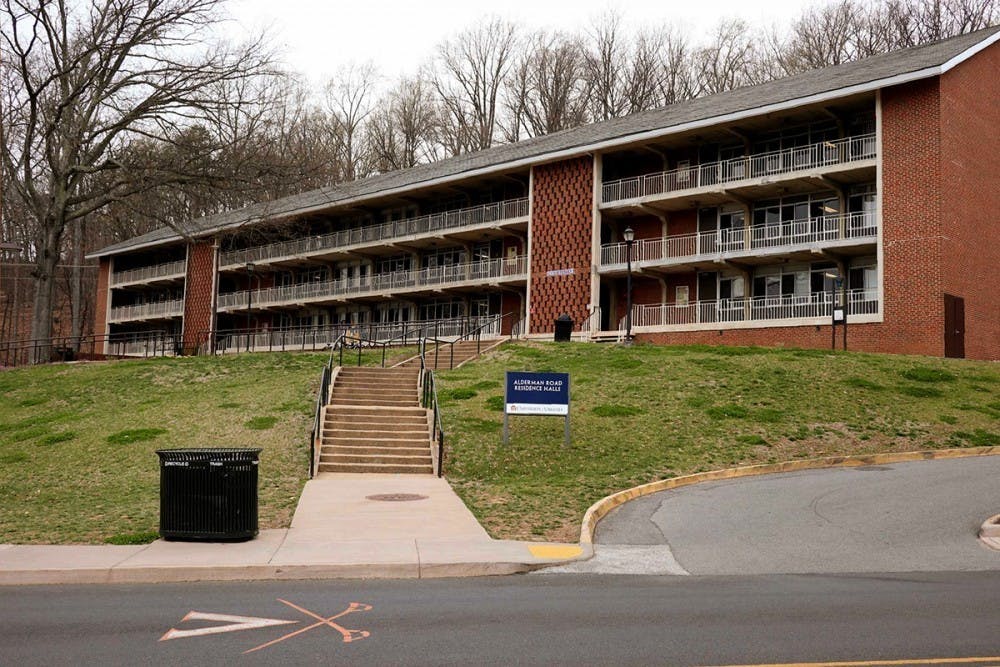When I tell someone I live in the Alderman Road suite-style dorms — colloquially referred to as the “motels” by students — I tend to hear, "Oh, gosh! I thought nobody lived there." The University groups these dorms into the Alderman Road Residence Area, and by affiliation with other residence halls, students refer to motels also as “new dorms.” This naming, however, contradicts reality — the motels are not new.
The Housing and Residence Life website states that new bathrooms and air conditioning were installed prior to the 2020-21 academic year. However, the overall upsetting conditions of the motels — especially compared to fully-renovated residences — raises concern about the quality of the conducted partial renovation and the University’s failure to provide an explicit renovation report. The reality is that the motel dorms need to be fully renovated, and it is the University administration’s responsibility to take action.
The interior — hospital-white lighting illuminating the pale, chipped walls, dust-soaked chairs and corners inhabited by mold — is repugnant to residents and visitors alike. The absence of amenities, such as study rooms and elevators, which are present in the majority of other first-year residence halls, accompany such features. Moreover, the recently-installed water filtration taps are questionable, as they were mounted in bathrooms within a few hours and without a proper cleaning system, evident from the poor pressure of water flow and residue left after each refill.
Students might assume that the motel dorms’ close proximity to commonly-used facilities like Scott Stadium and the Aquatic and Fitness Center make up for its poor living conditions. However, that is not the case, as McCormick Road, Alderman Road and Gooch/Dillard residences are just minutes further from these same facilities. The motels are also known for having the largest rooms out of all new dorms, but spacious rooms do not compensate for poor conditions. Possessing the largest windows does not eliminate the inability to open them. They cannot be cleaned without being opened, so the windows’ dirtiness obstructs the sunlight and causes poor lighting. Finally, HRL advertises the motels as a way of fostering community and interconnectedness among the residents. Suite-style dorms distribute 10 people among five rooms, one bathroom and a common area. Nonetheless, the common spaces currently are not suited for student bonding as they are poorly furnished and require additional effort to clean.
The issue of mold-infected air conditioning in the motel dorm’s is exacerbated by the tightly-shut windows, preventing fresh air from entering the room. This poses severe health concerns for students, further emphasizing the urgency for renovations. The University's failure to act on this issue became especially evident with an email from HRL Oct. 13 to all on-Grounds residents, which addressed the mold and mildew concerns in some of the buildings. The email claimed that "while there is no way to eliminate all mold, mold spores, and mildew indoors, eliminating excess moisture is ultimately the key to controlling mold in your housing." Justifying inaction on their part, the University shifted responsibility onto the residents themselves, providing a “Mold Prevention Page,” the central suggestion of which was consistent cleaning. HRL cannot assume that all residents are financially able to purchase the supplies needed to clean. Mold and dirt have infested the motels for too long. In short, residents cannot be expected to be satisfied with everyday life amidst unsanitary conditions.
The Facilities Planning and Construction Annual Report for the 2016-17 calendar year states that the McCormick Road Housing renovations were completed in “three phases, each lasting 14 months.” This means a total of 42 months for the renovation of a “400,000 square foot complex” with six buildings that accommodate nearly 1,400 students. Despite the inconveniences of reconstruction work, especially prevalent in the current upheaval of complaints regarding the endless cycle of construction on Grounds, it seems the renovation is possible to be conducted in a plausible period of time. I call on University administration to renovate the three motel buildings so that current issues are not faced by future generations of incoming students.
Alexandra Vorobyeva is a Viewpoint Writer who writes about University Life for The Cavalier Daily. She can be reached at opinion@cavalierdaily.com.
The opinions expressed in this column are not necessarily those of The Cavalier Daily. Columns represent the views of the authors alone.







